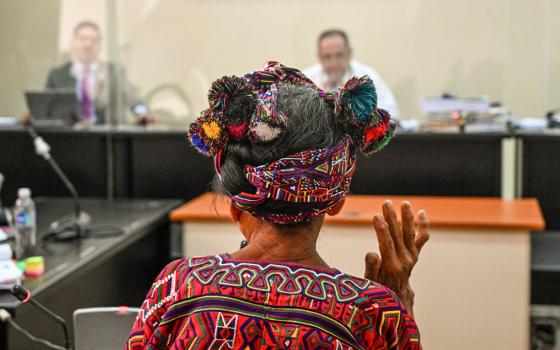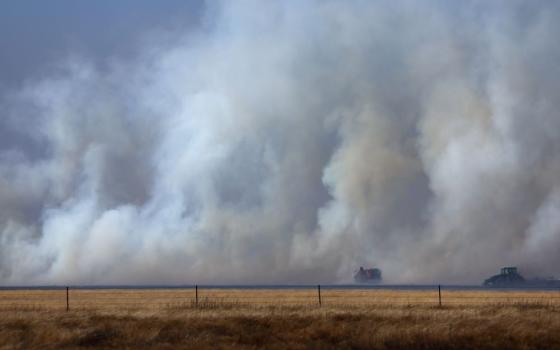It is hard to imagine a more perfect contemporary personification of human evil than the Italian mafia Camorra scattering carcinogenic trash throughout Naples or the 'Ndrangheta, whose high-placed and diversified criminal activities did not put it above assassinating a 3-year-old in January.
This weekend, Pope Francis found a gesture to rival these mafia organizations' power, declaring them excommunicated. His prophetic action set off a range of speculations.
Some fear the pope has placed himself in danger. Similar worries began circulating last year, when Calabrian state prosecutor Nicola Gratteri warned that "if the godfathers can find a way to stop" the pope from condemning corruption and reforming Vatican finances, "they will seriously consider it." At that time, mafia expert John Dickie was more skeptical: "Even a rudimentary projection of the likely consequences of a hit on the head of the Catholic Church," he said, "would show it to be catastrophic" to the mafia itself.
The excommunication has revived these rumors while also casting light on an equally surprising but underreported statement Francis made two weeks ago, expressing sympathy for "poor Pius XII." Some believe Pius said little during the Holocaust because he didn't want to draw Nazi attention to the many Italian Catholics sheltering Jews; others believe his silence had more to do with cowardice or indifference. Significantly, we now know that Francis's personal sympathy for Pius cannot be construed as a broad endorsement of the strategy of tactful silence in the face of enormous evil.
Yet the Pius debate raises a second question: not whether Francis has made himself more vulnerable, but whether he has placed ordinary Italian Catholics in harm's way. In 1993, after John Paul II warned that the Sicilian mafia would "face the judgment of God," the Casa Nostra bombed the Roman churches of St. John Lateran and San Giorgio in Velabro, perhaps in retaliation. More recently, violence convulsed Iraq and Palestine and a nun was assassinated in Somalia following Pope Benedict XVI's controversial and misunderstood remarks about Islam in 2006.
Could Francis' decision create new martyrs? Already, Nazi-era Christian prophets like Dietrich Bonhoeffer, Bernhard Lichtenberg, Clemens August von Galen, and Franz Jägerstätter have found their counterparts in murdered mafia opponents like Giuseppe Diana and the recently beatified Pino Puglisi.
To ask the question is certainly not to judge the pope's character. It is worth recalling that in 2009, when Pope Francis was still Cardinal Jorge Bergoglio of Buenos Aires, Argentina, a priest working among the poor received death threats from drug traffickers. Bergoglio removed the priest from his parish and announced publicly, "If something is to happen to one of mine, I want them to kill me."
Yet should violence occur against anyone in the church, it will remind us that we are not individuals in the Body of Christ. Simply through baptism, even the most ordinary Christian becomes a servant of the Gospel in solidarity with Jesus' martyrdom and that of the poor. We can only pray that the main effect of the pope's speech in Calabria will be an increase not of martyrs but of changed hearts, like that of Vincenzo Calcara and other so-called "pentiti" who have renounced their mafia ties.




